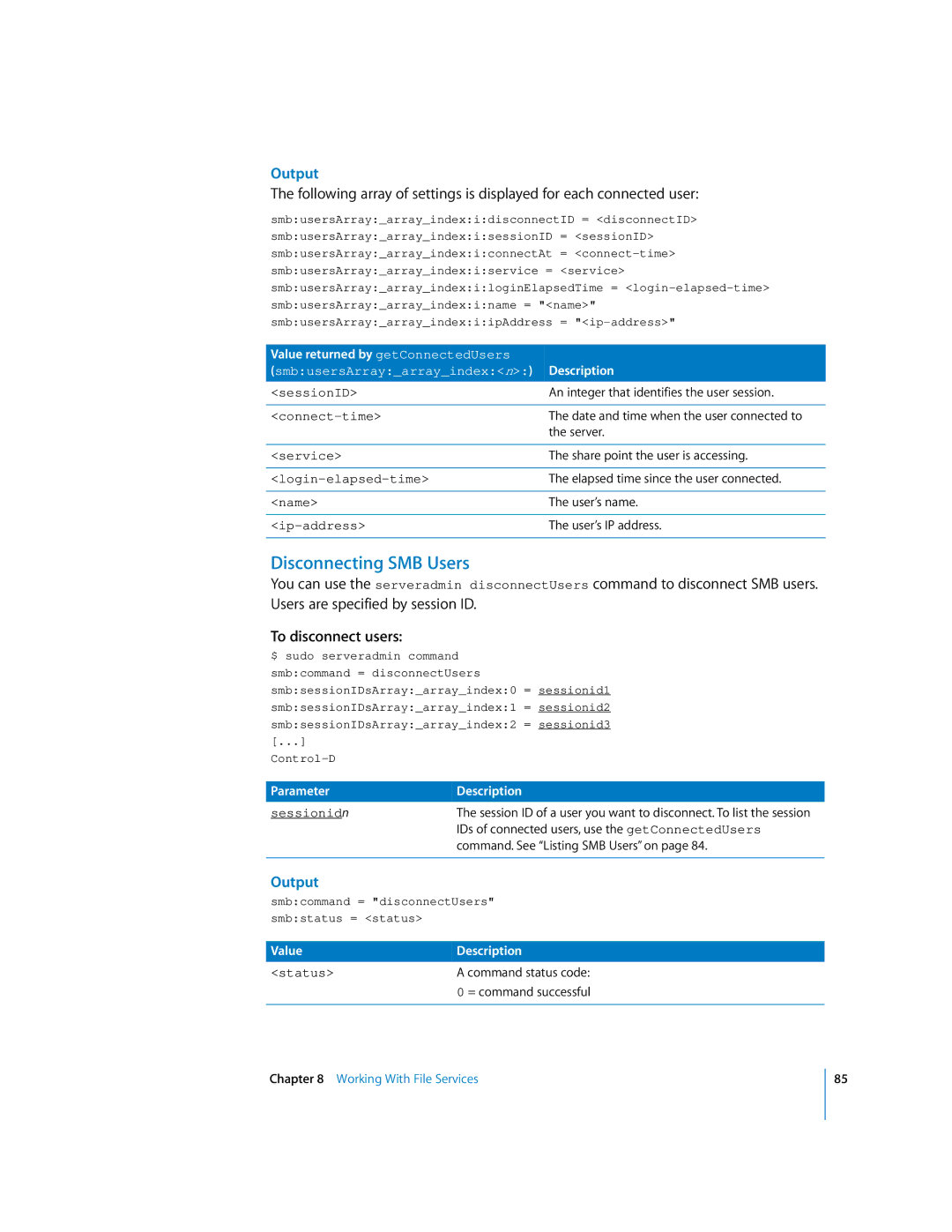
Output
The following array of settings is displayed for each connected user:
smb:usersArray:_array_index:i:disconnectID = <disconnectID>
smb:usersArray:_array_index:i:sessionID = <sessionID>
smb:usersArray:_array_index:i:connectAt =
smb:usersArray:_array_index:i:service = <service>
smb:usersArray:_array_index:i:loginElapsedTime =
smb:usersArray:_array_index:i:name = "<name>"
smb:usersArray:_array_index:i:ipAddress =
Value returned by getConnectedUsers
(smb:usersArray:_array_index:<n>:) Description
<sessionID> | An integer that identifies the user session. |
The date and time when the user connected to | |
| the server. |
|
|
<service> | The share point the user is accessing. |
|
|
The elapsed time since the user connected. | |
|
|
<name> | The user’s name. |
|
|
The user’s IP address. | |
|
|
Disconnecting SMB Users
You can use the serveradmin disconnectUsers command to disconnect SMB users. Users are specified by session ID.
To disconnect users:
$ sudo serveradmin command smb:command = disconnectUsers smb:sessionIDsArray:_array_index:0 = sessionid1 smb:sessionIDsArray:_array_index:1 = sessionid2 smb:sessionIDsArray:_array_index:2 = sessionid3 [...]
Parameter | Description |
sessionidn | The session ID of a user you want to disconnect. To list the session |
| IDs of connected users, use the getConnectedUsers |
| command. See “Listing SMB Users” on page 84. |
|
|
Output
smb:command = "disconnectUsers"
smb:status = <status>
Value | Description |
<status> | A command status code: |
| 0 = command successful |
Chapter 8 Working With File Services
85
